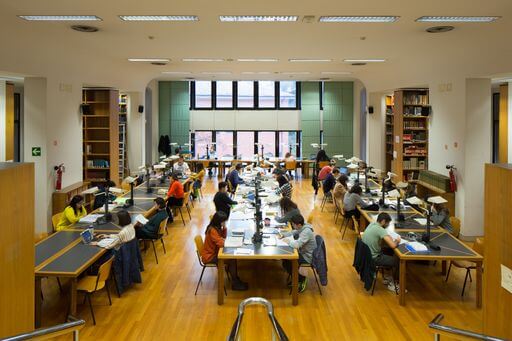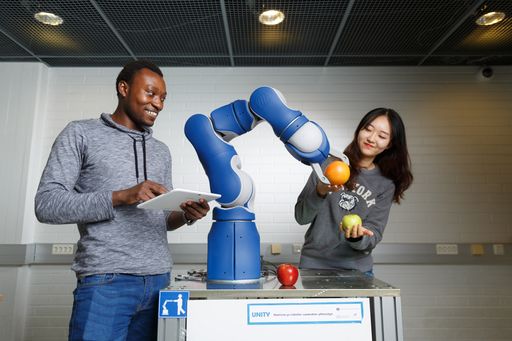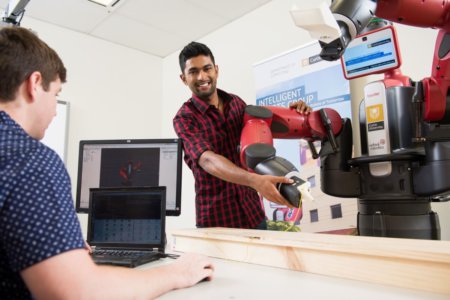
As the world continues to face significant planetary issues such as global warming, ocean acidification, biodiversity loss and urban migration, it is clear that the engineering profession has a significant part to play in safeguarding the future of our planet. As a drastic increase in environmental pollution across the globe has led to various research and development efforts, a relatively new discipline called environmental engineering has emerged, providing excellent career opportunities.
Environmental engineers already play an important role in improving and saving human lives. For example, they design the water management and waste systems that clean our water and eliminate dangerous bacteria and viruses.
Experts expect that by 2022 the need for environmental engineers will grow by about 12% to 15%. The prediction goes: the world will need more experts who can merge environmental sciences and engineering principles. lt will depend on the talent and leaders who can ensure a growing population has access to clean water, air and land. If you aim to join this visionary group, here are four universities to get you there.
The University of Bologna

Environmental engineers strive to ensure a growing population has access to clean water, air and land. Source: University of Bologna
Art, architecture and gastronomy — Italy elates, inspires and moves like no other. It is no wonder then, that this picturesque peninsula is one of the more popular destinations for international students.
Its oldest university — and believed to be the western world’s oldest too — is the University of Bologna, located in one of the most cosmopolitan and dynamic cities in the country. Spanning five campuses across the Emilia-Romagna region (Bologna, Ravenna, Cesena, Forlì, Rimini) and one in Buenos Aires, Argentina, 32 departments, and 11 research and training centres, it continues to be at the forefront of innovation and cutting-edge research and teaching today.
Here, 87,590 students from all around the world and expert faculty members work towards one mission: to transmit knowledge, experiment with techniques and develop the ideas that will address the transformations of our time.
Education goes beyond hypotheses and theory here. UniBo offers a wide range of innovative programmes: 232 degrees in all disciplinary fields, where 80 of them are delivered in English.
Within the field of engineering, it has a variety of programmes that span the automotive industry to architecture and information technology. The university bridges the gap between sustainability and engineering through research as well as degree programmes. These include more than 20 international programmes such as Civil Engineering, Artificial Intelligence, Environmental Engineering, Biomedical Engineering and Telecommunications Engineering.
Students will have the opportunity to work with renowned academics carrying out research in their respective fields and linked to top industries in the region, such as agrofood, packaging, motor brands, and wellness.
These programmes build on the university’s strengths, constantly refreshed and prepared to meet the demands of our changing world. This allows students to devise innovative solutions that combat social and environmental problems around energy supply, distribution and consumption, and manage the transition towards a more sustainable energy sector.
To learn more about this university with 22 subjects ranked in the world’s top 100 in the 2021 QS World University Rankings by Subject and ranked first in Italy in the Times Higher Education Impact Rankings with respect to its contribution towards the UN Sustainable Development Goals, click here.
Tampere University

At Tampere University, the worlds of engineering and sustainability collide. Source: Tampere University
With a mission to address the greatest challenges facing our society and to create new opportunities, the Tampere University is building a new model for higher education and research in Finland. The university’s research and education, for example, in the fields of economics, technology, health and society, promote multidisciplinary learning and lifelong partnerships.
Here, the worlds of engineering and sustainability collide. The university’s Faculty of Engineering and Natural Sciences offers degree programmes in English such as Science and Engineering – Natural Sciences and Mathematics and Science and Engineering – Computing and Electrical Engineering.
Graduates can also choose from a wide range of master’s programmes including Automation Engineering; Factory Automation and Robotics; Business and Technology; Industrial Engineering and Management; Environmental Engineering; Engineering Materials Science; Photonics Technologies; and Erasmus Mundus Europhotonics.
Students who take on the Environmental Engineering programme will gain valuable industry experience and be inspired by world leading academics in hydrology, hydraulics, water resources and waste management. They are taught by consultants who have led major international projects in sustainable land, water and coastal resource management.
Tampere University has designed a unique curriculum aligned with the top institutions of the world, ensuring students graduate with the ideal combination of advanced technical and professional skills valued by employers, and a higher level qualification that is recognised globally.
As for research at Tampere, it takes place in the Centres of Excellences (CoE) — promoting health and well-being for all sections of the population, building efficient and safe environments, and ensuring that social responsibility is respected.
The University of Warwick

At Warwick University education is flexible, innovative and interdisciplinary. Source: Warwick University
The University of Warwick’s School of Engineering research and teaching is at the forefront of discovery, creation and practice that is internationally leading. The university is a pipeline for top engineering talent to the world’s leading companies.
The School of Engineering empowers future engineers to change the world. Embarking on an engineering pathway at Warwick University not only allows students to develop logical thinking and crucial analytical skills, but prepares them for a career with a variety of highly paid careers.
It starts with an education that is flexible, innovative and interdisciplinary. Warwick students can choose from a range of engineering programmes including bachelor’s in Computer Systems Engineering; Electrical and Electronic Engineering; General Engineering; Manufacturing and Mechanical Engineering; Systems Engineering and so forth.
Graduates who want to upskill can opt for master’s programmes in Biomedical Engineering; Electrical Power Engineering; Sustainable Energy Technologies; Tunnelling and Underground Space; and Humanitarian Engineering.
Here, students are immersed in the technology used to improve energy efficiency, learn to use renewable resources and reduce the environmental and social impacts of conventional energy resources. They get to work on sustainable energy projects at professional consulting and managing levels. As graduates, they take on complex scientific tasks on sustainable energy-related projects in research institutes.
At Warwick, research encompasses fields in energy, health, innovative manufacturing, future materials and sustainable cities. It tackles the big issues affecting today’s rapidly changing world, and helps create a brighter, healthier and more sustainable future.
The School of Engineering collaborates with industry leaders to develop practical courses to prepare students for a global engineering career. Their industry panels work directly with each discipline to provide an external perspective on teaching and analyse programmes to ensure they align with real-life working environments.
Durham University

Durham’s Department of Engineering has strong multidisciplinary links across the entire range of research. Source: Durham University
At Durham University, students benefit from the university’s high standards, strong commitment to the best teaching practices and curricula designed by experts in the fields of education offered.
Recognised for its innovative technological solutions which improve the quality of life and well-being of people, the engineering programmes feature work-integrated learning, development of professional skills, and local and overseas employment opportunities.
Durham’s Department of Engineering has strong multidisciplinary links across all research areas. It is recognised as one of the top centres of research in Engineering in the world.
The department offers bachelor’s and master’s programmes in Mechanical, Civil, Electrical, Electronic, Renewable Energy and Aeronautical engineering. Students will get the chance to combine design-based learning with authentic engineering projects.
These prepare them for the world of work and to apply fundamental and technical knowledge to develop innovative solutions to real world environmental problems — meaning students will graduate with the knowledge and skills required to hit the ground running in this fast-growing sector.
The department’s curriculum addresses the world’s energy challenges as they switch from fossil fuels to clean energy sources. Here, students put their skills to the test in industry-standard facilities and have opportunities for practical training, project work and placement at home or abroad that give them a practical insight into the industry, while enhancing career prospects.
These turn students into highly sought-after graduates with the know-how to address global environmental issues such as climate change, sustainability, recycling, public health, air and water, as well as pollution and contamination.
*Some of the institutions featured in this article are commercial partners of Study International










